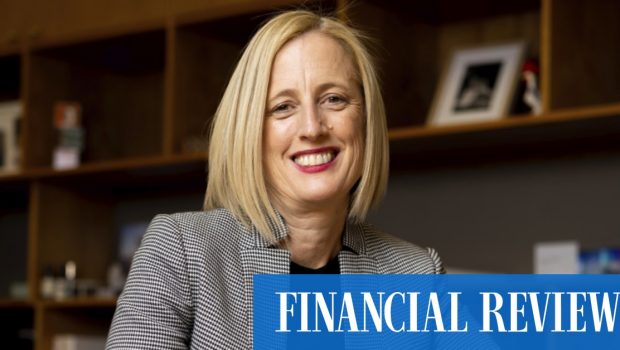Focus on cybersecurity as Australia slips down digital rankings of United Nations E-Government Survey
Asked if the new government was committed to the same goal, digital minister Katy Gallagher indicated the focus would be on improving trust and security.
“Since coming to government the minister has been receiving briefings about digital and data capacity across the [Australian Public Service],” a spokesman said.
“Improving digital services to the Australian community will be a key priority in public sector reform.
“Our goal is to ensure Australians can access safe, secure and trusted government services online, and that will be a focus of the Digital and Data Ministers meeting in November.”
The shift in emphasis comes after nearly 10 million people had identity and other credentials potentially exposed in a cyber breach of Australia’s second-largest carrier, Optus.
The UN’s E-Government Survey uses three measures to determine an overall development index, or EGDI. The measure is relative to other countries, as opposed to being an absolute measurement
The three measures the biannual rating considers are the quality of national online service delivery; the state of telecommunications infrastructure; and an education literacy metric, known as the human capital index.
Countries are ranked in order based on their relative scores. In the latest ranking, Australia rated 0.9380 for national online service delivery, down from 0.9772 in 2018 when it was ranked the second most-developed e-government.
The online service index is made up of several weighted assessments. These are services provision (45 per cent), technology (5 per cent), the institutional framework supporting e-government development (10 per cent), content provision (5 per cent), and e-participation (35 per cent). It is assessed based on an 180-question survey. South Korea is the global leader in online services provision.
Second lowest
Among its peers, Australia again rated second lowest for telecommunications infrastructure, based on data provided by the International Telecommunications Union.
This measure considers as a proportion of the population the number of mobile subscriptions, internet and fixed and mobile broadband users.
Australia topped the world for the third measure known as the human capital index, based on data from the United Nations Educational, Scientific and Cultural Organisation.
Australia relied upon its high adult literacy, solid school retention rates and large number of undergraduate university admissions to bolster its declining ranking for online services and bottom of class communications.
The UN noted how many countries had developed an online identity system that could be widely relied up on.
“Digital identity has become more widely accepted by governments and in many cases physical presence is no longer required for services, with online methods established for identity verification and authentication.”
The UN observed that governments were moving to rid themselves of portfolio-specific services, focusing on the delivery of services wrapped around users.
”The present edition of the UN E-Government Survey illustrates how e-government has evolved from a siloed, technocratic approach to governance in a handful of high-income countries to a whole-of-government and whole-of-society approach undertaken in a broad range of countries.
“E-government is now an essential feature of governance, playing a central role in the way governments operate at virtually all levels,” the survey said.
The comments come as former IBM and Telstra chief David Thodey is undertaking a review of the myGov service portal and what role it plays to unify government service delivery both across the Commonwealth, but also the federation.








Gloss